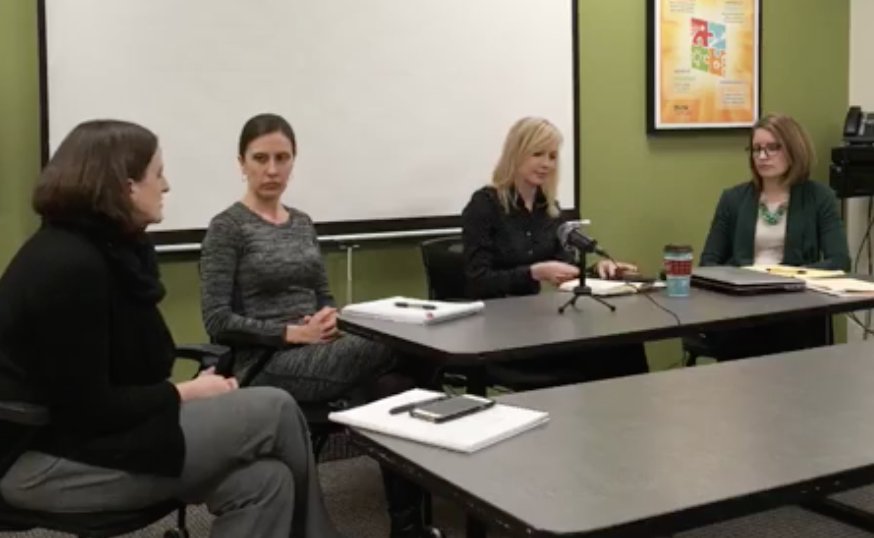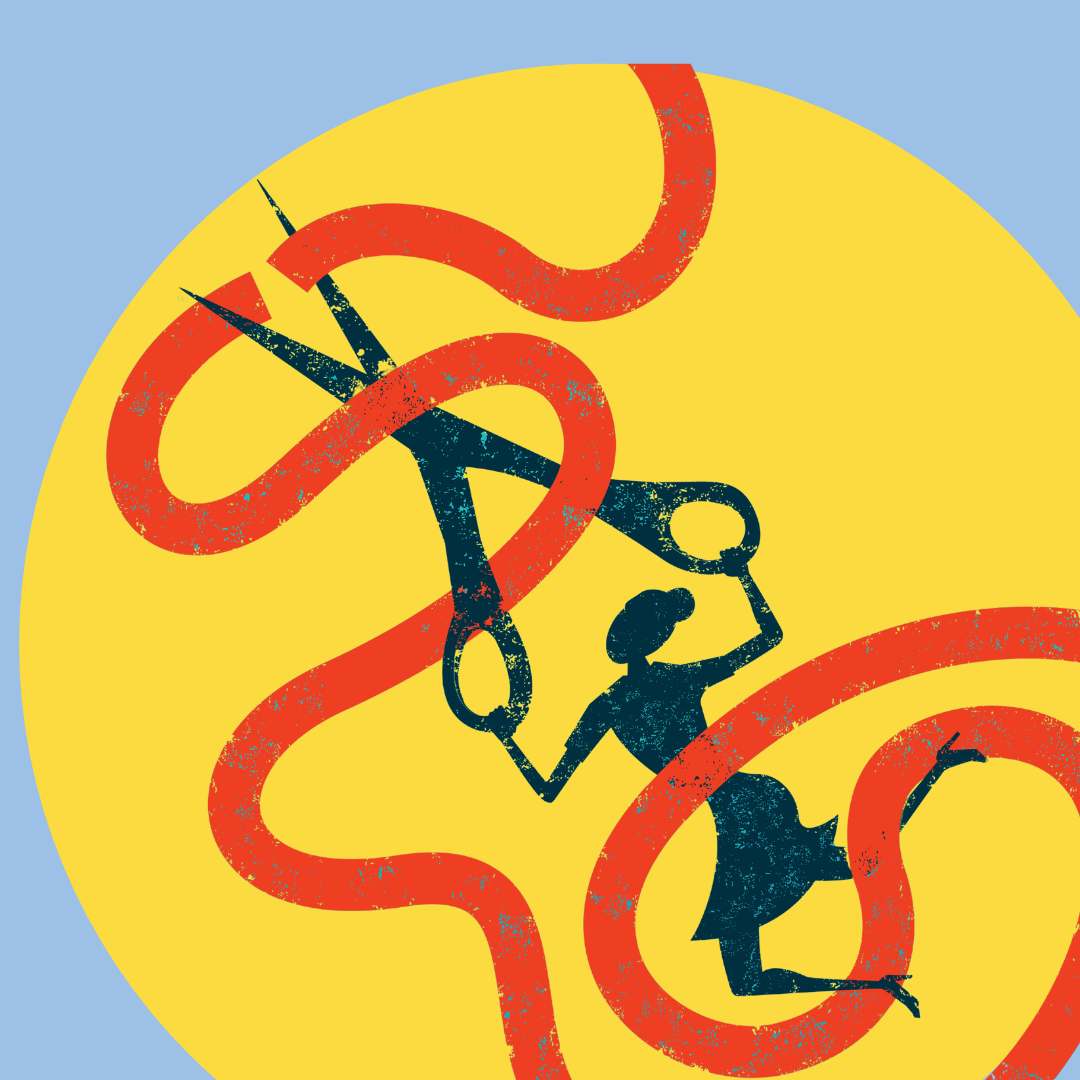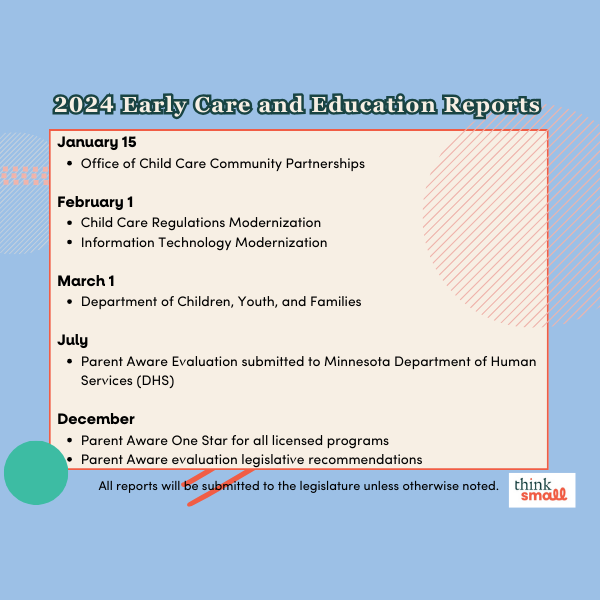By Marie Huey, Public Policy and Advocacy CoordinatorFacts and speculation both made appearances at February’s Ann Kaner-Roth Policy Hour at Think Small in Minneapolis, and Sara(h)s abounded.

Sara Benzkofer, Sarah Orange, Sarah Clarke, and Jessica Anderson presented during the February Ann Kaner-Roth Policy Hour at Think Small.
- Ongoing disagreement over legislative funding due to the governor’s line-item veto. This issue is still unresolved after several court dates and attempts at mediation.
- Ongoing lawsuit and disagreement over the lieutenant governor’s role. There is currently no timeline for the resolution of this issue, and it is unclear exactly what Senator Fishbach’s role and influence will be.
- Two legislators resigned over sexual harassment allegations. Republican House leaders just announced a House Subcommittee on Workplace Safety and Respect to look into the issue.
- Special elections on February 12. Two new members, one representative and one senator, will join the legislature for the upcoming session, replacing those who left because of sexual harassment allegations.
- November 2018 elections. Governor, all state representative seats, all state constitutional offices, and the entire federal delegation will be on the Minnesota ballot. Many candidates will be thinking strategically about how to use session as a way to deliver for constituents and win elections.
- Federal tax bill implications. Minnesota will likely look at how to address the federal changes.
- Governor Dayton’s legacy. He won’t be running for re-election in November so this is Dayton’s last session to solidify his legacy and leave the office in a good financial position, as well as helping set the DFL up for future success.
- Bonding? Off years often include a bonding bill which allows the state to pay for infrastructure projects. The governor proposed a $1.5 billion bonding plan. House and Senate leaders have indicated they don’t have the appetite for such a large price tag, but some kind of a deal may be reached.
All these considerations mean lawmakers will have a lot on their mind when February 20th arrives. What does that mean for early learning, and where do children and families rank on the list of priorities? The answers remain a mystery for the moment, but our guests weighed in with their thoughts.Anderson works mostly with the Health and Human Services (HHS) committees. She’s part of the Kids Can’t Wait coalition, which aims to fully fund the Child Care Assistance Program (CCAP). She’ll also be working to pass remaining family-friendly provisions to CCAP. In addition, she is part of the Minnesotans for Paid Leave coalition. Priorities she’s hearing about from HHS members include elder care abuse, MinnesotaCare funding, and mental health.Another issue likely up for discussion is the troubled Minnesota Licensing and Registration System (MNLARS). Lawmakers may spend time discussing possible fixes to that program.Clarke is lobbying for MinneMinds which means she interacts frequently with Education Committee members. She’s hearing similar talk to Anderson about health-related priorities. There’s a sense that much has been done for education and legislators may want to focus on other areas this session.Both Anderson and Clarke expressed cautious optimism that there may be a chance to advance their organizations priorities, even though lawmakers aren’t enthusiastic about spending money.Policy Hour attendees brought up a couple of potential policy changes that legislators could take on without spending anything. One suggestion was to make Early Learning Scholarships available to all children birth to age five. Another was to eliminate the requirement that children receiving scholarships attend the same program.Follow along to see how the session actually plays out. New issues may arise, and constituent concerns matter! If you want to influence what legislators are working on, you can find out who represents you and share your thoughts.You can watch the entire January Ann Kaner-Roth Policy Hour on Minnesota’s Future Facebook page.







